Your skin’s most important job is to keep out the billions of harmful bacteria that swarm over every surface. Any wound that penetrates the dermis layer and causes bleeding will allow bacteria to get in, so we have evolved a precisely coordinated mechanism to seal up the gap as quickly as possible. The healing process uses extra collagen protein for the repair, so the new skin is actually stronger than before. This shows as a visible scar.
Small cut
1. Haemostasis
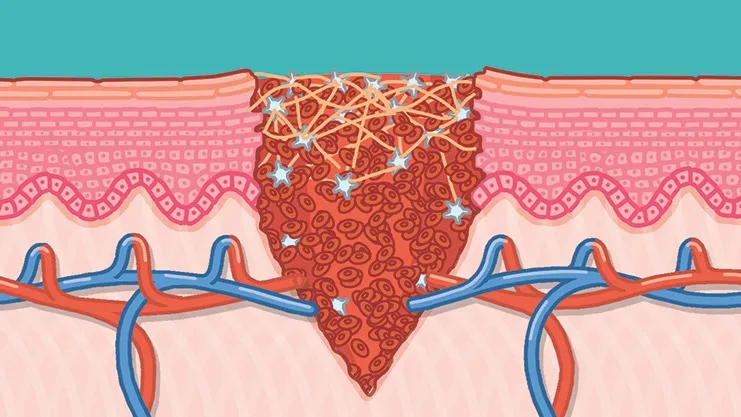
When the skin is punctured, blood vessels contract and platelets release fibrin proteins that tangle together to form a clot and seal the wound.
2. Inflammation
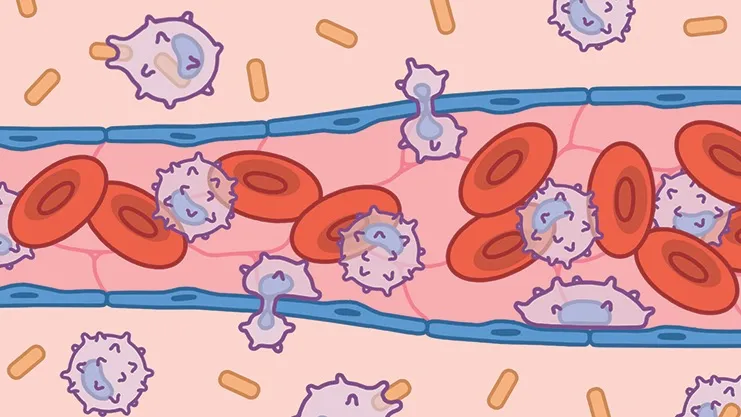
Next the blood vessels expand again to allow white blood cells to flock to the wound site. These attack any bacteria that got past the clot.
3. Proliferation
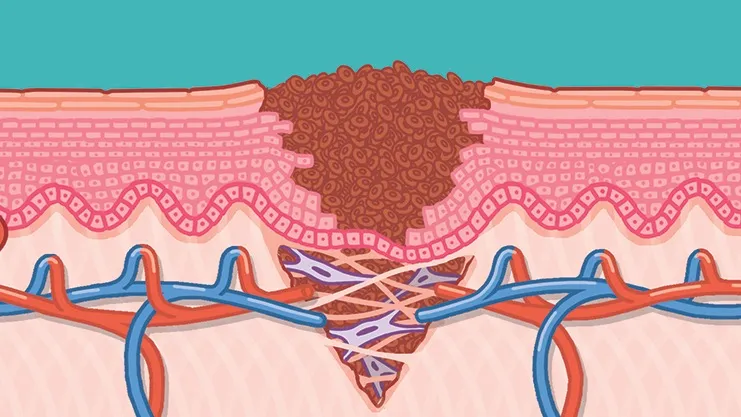
After a few days, fibroblast cells arrive and produce collagen. This protein acts like a scaffold, while the dermis cells reproduce to close up the wound.
Large cut
1. Keep it clean
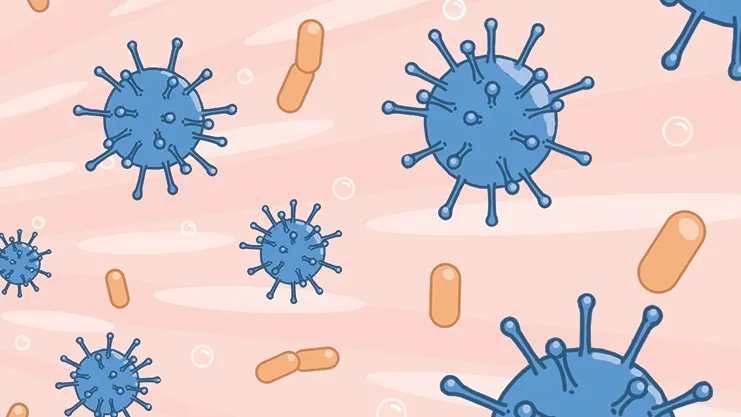
Wash the open cut to prevent bacteria getting trapped inside. Don’t use disinfectant because this will kill your own cells that are trying to repair the wound.
2. Seal it
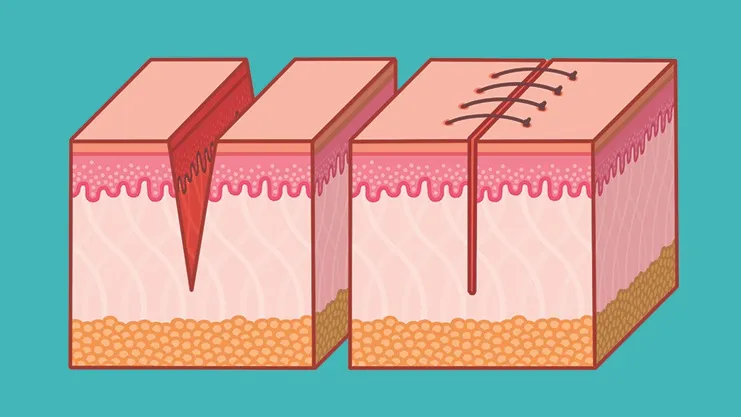
A plaster keeps dirt out and helps the clot form. If the wound is still bleeding after 10 minutes with a plaster on, you may need stitches.
3. Scarring
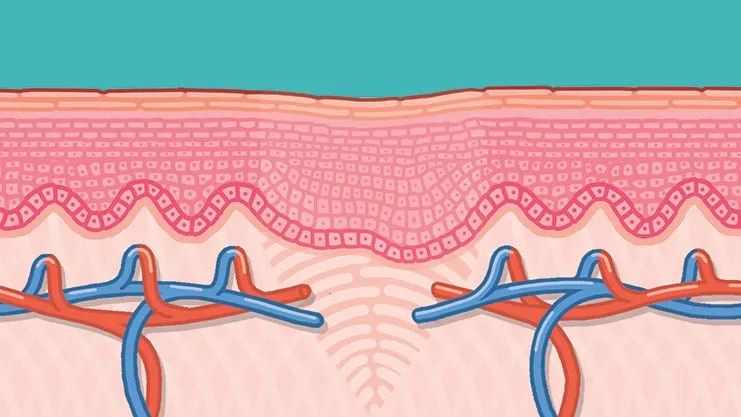
The skin continually rebuilds the collagen matrix for up to a year after the cut. This scar tissue will fade slightly for another year after that.
Subscribe to BBC Focus magazine for fascinating new Q&As every month and follow @sciencefocusQA on Twitter for your daily dose of fun science facts.